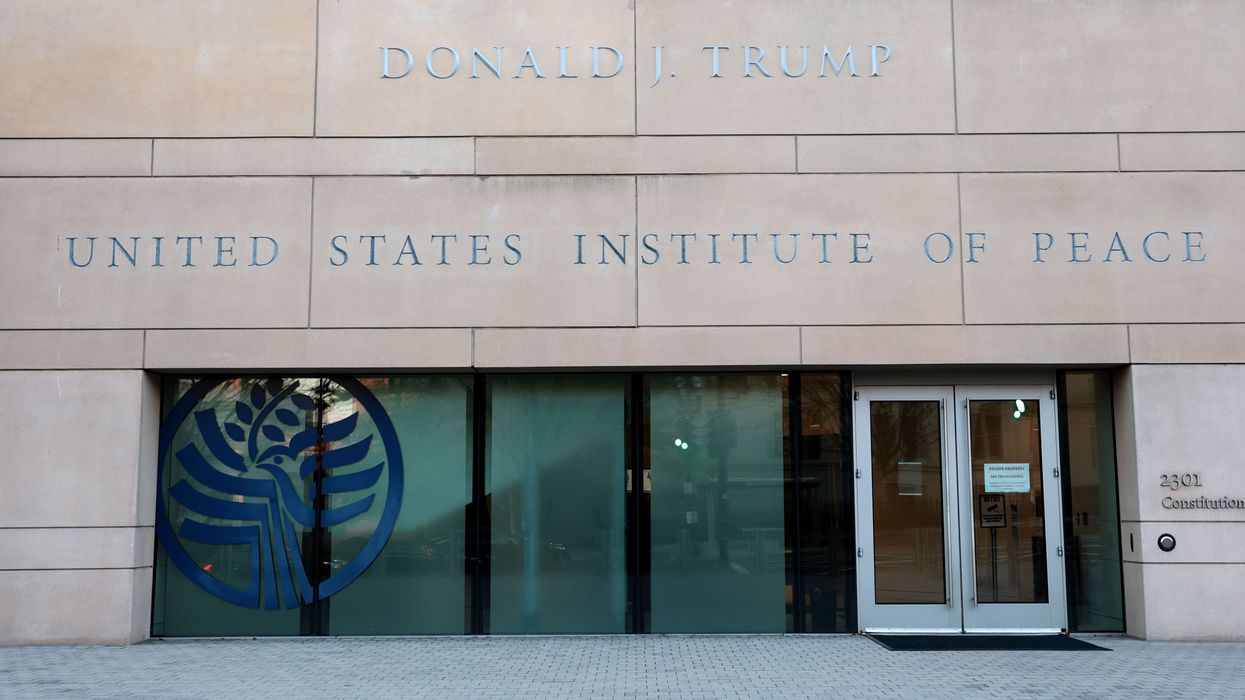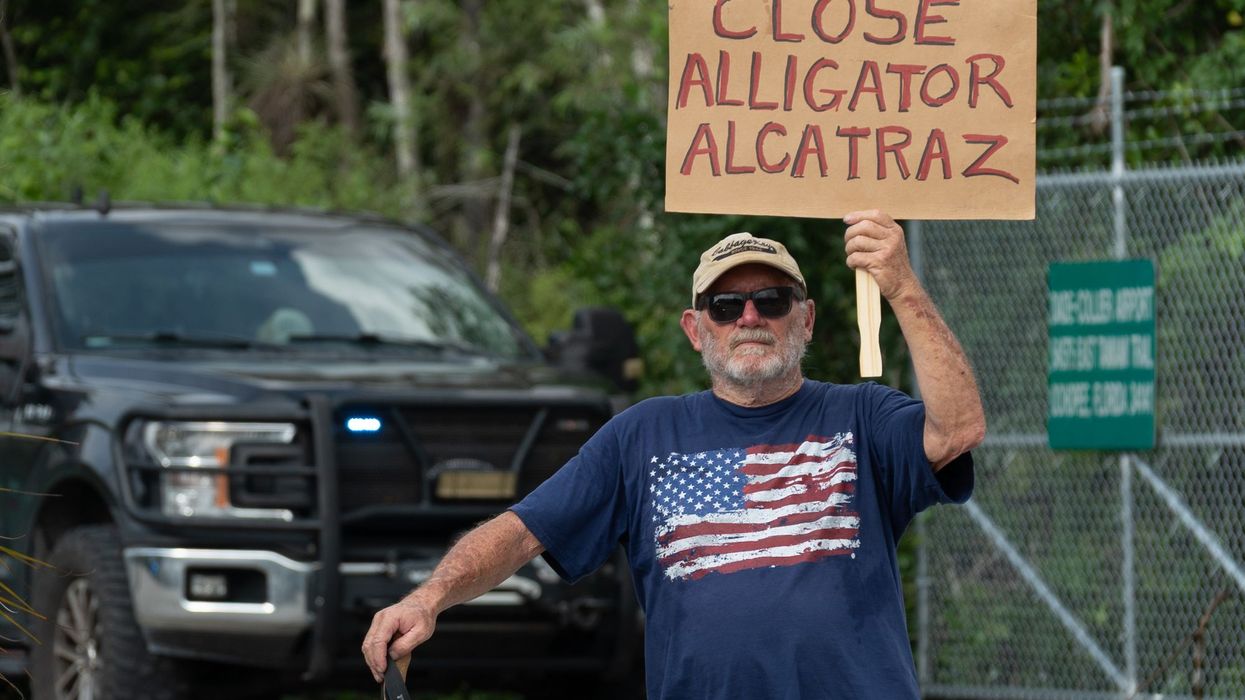February, 17 2009, 12:19pm EDT

For Immediate Release
Contact:
Loretta Kane,202-657-4159
Jeff Cappella, 202-730-7204
'King Size Combo:' New Report Reveals Broad Toll on Taxpayers by Bailed-Out Bank Goldman Sachs and Its Holdings in Burger King
Goldman paid nearly double the average bonus on Wall St ; Burger King costs taxpayers estimated $273 million a year
WASHINGTON
As
Congress and the Obama administration look to hold major banks that
have received billions in federal bailout funds better accountable for
their corporate practices, a report released today by the Service
Employees International Union (SEIU) on Goldman Sachs and its holdings
in Burger King finds that the true total of taxpayer subsidies some of
the banks are enjoying extends well beyond the monies they've taken
through the Troubled Assets Relief Program (TARP).
The report finds that one of
Goldman Sachs' major investments, Burger King, costs taxpayers more
than a quarter billion dollars a year as Burger King employees are
forced to rely on public health and income support programs as a result
of the lack of affordable employer health coverage and sub-poverty wage
levels at Burger King.
Meanwhile, Burger King chief
executive John Chidsey took home $5.4 million in 2008 and Goldman Sachs
accepted $10 billion in taxpayer bailout money 3/4
then paid out $6.5 billion in bonuses. Goldman paid the highest per
employee bonus average among top banks reporting so far, and the firm's
bonuses were nearly double the average bonus on Wall Street. If Goldman
Sachs had used the $6.5 billion it paid in corporate bonuses to help
Burger King's 360,000 workers instead, each worker would have received
$18,000.
"The misuse of
tax dollars we're seeing now by some of the bailed-out banks is no
one-shot deal," said SEIU President Andy Stern. "Year in and year out
companies that can easily afford to improve health care and wages for
workers simply aren't doing so and are making taxpayers pick up the
public assistance tab instead. It's drain on our economy we can't
afford ignore any longer."
A previous SEIU report on another
bailout recipient, Bank of America, found similar evidence of
employment costs being shifted to taxpayers 3/4 up to $50 million a year because Bank of America workers lack affordable employer health benefits.
Service workers held a protest
today outside Burger King headquarters in Miami to call on Burger King
and Goldman Sachs to stop opposing efforts to rebuild the economy
through improvements for workers while taking billions of dollars from
taxpayers and rewarding CEOs and corporate staff. Additional public
outreach on the issue will take place throughout the week this week at
Burger King restaurants in other cities around the country.
While costing taxpayers billions,
both Burger King and Goldman Sachs are fighting legislation in the U.S.
Congress that could help all workers and the overall economy by broadly
increasing consumer purchasing power. Between 2006 and 2008 Burger King
has spent $319,648 on lobbying, including lobbying against the Employee
Free Choice Act, a measure that would ensure workers the freedom to
form a union for a voice for improved wages, benefits, and working
conditions. Burger King also spent $180,000 to hire lobbyists to fight
pro-worker legislation, including an increase in the minimum wage in
2006 and 2007.
Goldman Sachs is involved in
lobbying against workers' interests as a member of the Business
Roundtable, which spent $15,849,000 on lobbying in 2008 according to the Center for Responsive Politics, including lobbying against the Employee Free Choice Act in the third and fourth quarters last year.
With the food service industry,
including fast food, expected to add one million new jobs to the
economy between 2006 and 2016, the SEIU report "King Size Combo: What
Burger King and Goldman Sachs Are Costing Our Country" looks at a wide
range of worker and consumer issues at Burger King to gain perspective
on the potential import of the growing fast food sector for the broader
U.S. economy.
The SEIU report concludes that in
addition to assuring sound banking practices on Wall St., Goldman Sachs
must take responsibility for its important economic holdings on Main
St., such as Burger King. The report recommends that regulators should
demand that bailout recipients stimulate the economy by increasing
lending and by committing to living wages, affordable health benefits,
freedom for workers to choose to form unions (the Employee Free Choice
Act), and other consumer and worker protections.
For a copy of the report, please visit https://action.seiu.org/bk.
To see Brave New Films' newly released video about business practices
at Burger King and the Goldman Sachs connection, please visit https://www.warongreed.org .
With 2 million members in Canada, the United States and Puerto Rico, SEIU is the fastest-growing union in the Americas. Focused on uniting workers in healthcare, public services and property services, SEIU members are winning better wages, healthcare and more secure jobs for our communities, while uniting their strength with their counterparts around the world to help ensure that workers--not just corporations and CEOs--benefit from today's global economy.
LATEST NEWS
Genocide Backer and Narcissist Donald J. Trump Puts His Name on 'US Institute of Peace'
"This is pathetic, like a little boy running around putting 'Property of Donald' stickers on everything in the house," said one critic.
Dec 04, 2025
The signs on the building of the United States Institute of Peace were changed overnight to include "Donald J. Trump," adding the name of the sitting US president who, among other examples of warmongering and war-making, has openly supported the Israeli genocide in Gaza, bombed Iran, sent an aircraft carrier strike group to threaten Venezuela, and ordered the extrajudicial killings of over 80 people aboard boats in the Caribbean and Pacific in recent months.
The building’s name change preceded a meeting on Thursday between leaders of Rwanda and the Democratic Republic of Congo, where a proposed peace deal between the two warring nations is set to be signed. It also came amid an ongoing clamoring by the president to be recognized as a great maker of peace despite his record of violence, thuggery, racism, and human rights violations.
Critics of the move were swift in their condemnation of Trump, known more for being possibly the most famous narcissist in the history of humanity than for waging anything that remotely looks like a just and lasting peace.
"This is pathetic, like a little boy running around putting 'Property of Donald' stickers on everything in the house," said Tom Nichols, a staff writer at The Atlantic magazine. "It's not the Trump institute of peace, it's the US Institute of Peace."
Trump, who has repeatedly expressed his desire to be awarded the Nobel Peace Prize, has a long history of supporting and conducting overseas military operations and backing the worst actors on the world stage when it comes to war crimes and human rights abuses, counting as his close allies Israeli Prime Minister Benjamin Netanyahu, wanted by the International Criminal Court on war crimes charges, and Saudi Crown Prince Mohammed bin Salman, implicated by Trump's own CIA as the person who ordered the murder and dismembering of journalist Jamal Khashoggi in 2018.
As foreign policy analyst John Feffer recently wrote in a column that appeared in Common Dreams, Trump "deserves" not a prize for peace, but "the opposite: a Nobel prize for war." According to Feffer:
Trump often tries to change the fabric of reality by asserting the truth of absolute falsehoods—that former President Barack Obama was born in Africa, that the 2020 elections were stolen, that he’s the smartest person in every room.
So, too, with the Nobel Peace Prize. Trump boasts that he has ended “seven or eight” wars. It’s a questionable claim given that he was barely involved in negotiating ceasefires in several of those conflicts (Kashmir, Thailand vs. Cambodia) while some of the “successes,” like Gaza, remain largely unresolved. In the case of Egypt and Ethiopia, there wasn’t even a war to end.
Adding further irony to the new facade, Trump is the target of an active lawsuit brought by USIP staffers who were ousted from their posts following a raid on their offices by members of Trump's so-called Department of Government Efficiency, or DOGE, formerly led by mega-billionaire libertarian Elon Musk.
In a statement on the building's new signage, George Foote, the lawyer representing the former USIP leadership and staff, said, "Renaming the USIP building adds insult to injury" for those impacted by Trump's assault on the agency.
"A federal judge has already ruled that the government’s armed takeover was illegal," added Foote. "That judgment is stayed while the government appeals, which is the only reason the government continues to control the building. The rightful owners will ultimately prevail and will restore the US Institute of Peace and the building to their statutory purposes."
Keep ReadingShow Less
'A Human Rights Disaster': Report Details Torture and Chaos at 'Alligator Alcatraz'
Conditions at Florida detention facilities "represent a deliberate system of cruelty designed to punish people seeking to build a new life in the US,” said an official at Amnesty International.
Dec 04, 2025
Two immigration detention centers in Florida have gained notoriety for inhumane conditions since Republican Gov. Ron DeSantis, in close alignment with President Donald Trump's anti-immigrant agenda, has rapidly scaled up mass detention in the state, and a report released Thursday detailed how human rights violations at the two facilities amount to torture in some cases.
Amnesty International published the report, Torture and Enforced Disappearances in the Sunshine State, with a focus on Krome North Service Processing Center and the Everglades Detention Facility, also known by its nickname, "Alligator Alcatraz."
As Common Dreams has reported, many of the people detained at the facilities have been arbitrarily rounded up by immigration agents, with a majority of the roughly 1,000 people being held at Alligator Alcatraz having been convicted of no criminal offense as of July.
Amnesty's report described unsanitary conditions, with fecal matter overflowing from toilets in detainees' sleeping areas, authorities granting only limited access to showers, and poor quality food and water.
Some of the treatment amounts to torture, the report says, including Alligator Alcatraz's use of "the box"—a 2x2 foot "cage-like structure people are put in as punishment—which inmates have been placed in for hours at a time with their hands and feet attached to restraints on the ground.
“These despicable and nauseating conditions at Alligator Alcatraz reflect a pattern of deliberate neglect designed to dehumanize and punish those detained there,” said Amy Fischer, director of refugee and migrant rights with Amnesty International USA. “This is unreal—where’s the oversight?”
At Krome, detainees have been arbitrarily placed in prolonged solitary confinement—defined as lasting longer than 15 days—which is prohibited under international law.
"The use of prolonged solitary confinement at Krome and the use of the ‘box’ at 'Alligator Alcatraz' amount to torture or other ill-treatment," said Amnesty.
The report elevates concerns raised in September by immigrant rights advocates regarding the lack of federal oversight at Alligator Alcatraz, with nearly 1,000 men detained at the prison having been "administratively disappeared"—their names absent from US Immigration and Customs Enforcement's detainee locator system.
"The absence of registration or tracking mechanisms for those detained at Alligator Alcatraz facilitates incommunicado detention and constitutes enforced disappearances when the whereabouts of a person being detained there is denied to their family, and they are not allowed to contact their lawyer," said Amnesty.
The state of Florida has not publicly confirmed the number of people detained at Alligator Alcatraz.
One man told Amnesty, "My lawyers tried to visit me, but they weren’t let in. They were told that they had to fill out a form, which they did, but nothing happened. I was never able to speak with them confidentially.”
At Krome, detainees described overcrowding, medical neglect, and abuse by guards when Amnesty researchers visited in September. ICE has constructed tents and other semi-permanent structures to hold more people than the facility is designed to detain.
The Amnesty researchers were given a tour of relatively extensive medical facilities at Krome, including a dialysis clinic, dental clinic, and a "state-of-the-art" mental health facility—but despite these resources, detainees described officials' failure to provide medical treatment and delays in health assessments. Four people—Ramesh Amechand, Genry Ruiz Guillen, Maksym Chernyak, and Isidro Pérez—have died this year while detained at Krome.
"It’s a disaster if you want to see the doctor," one man told Amnesty. "I once asked to see the doctor, and it took two weeks for me to finally see him. It’s very slow.”
Researchers with the organization witnessed "a guard violently slam a metal flap of a door to a solitary confinement room against a man’s injured hand," and people reported being "hit and punched" by officials at Krome.
In line with the Trump administration, DeSantis and Republican state lawmakers have sought to make Florida "a testing ground for abusive immigration enforcement policies," said Amnesty, with the state deputizing local law enforcement to make immigration arrests and issuing 34 no-bid contracts totaling more than $360 million for the operation of Alligator Alcatraz—while slashing spending on healthcare, food assistance, and disaster relief. Florida has increased the number of people in immigration detention by more than 50% since Trump took office in January.
The organization called on Florida to redirect detention funding toward healthcare, housing, and other public spending, and to ban "shackling, solitary confinement, and punitive outdoor confinement" in line with international standards.
"At the federal level, the US government must end its cruel mass immigration detention machine, stop the criminalization of migration, and bar the use of state-owned facilities for federal immigration custody," said Amnesty.
Fischer emphasized that the chaotic and abusive conditions Amnesty observed at Alligator Alcatraz and Krome "are not isolated."
"They represent a deliberate system of cruelty designed to punish people seeking to build a new life in the US,” said Fischer. “We must stop detaining our immigrant community members and people seeking safety and instead work toward humane, rights-respecting migration policies.”
Keep ReadingShow Less
'Pro-White Collar Crime': Trump Pardons Former Executive Indicted by His Own DOJ
"This president serves the ultra-wealthy—not working people," said one watchdog group.
Dec 04, 2025
US President Donald Trump on Wednesday granted a full, unconditional pardon to former entertainment venue executive Tim Leiweke, who was indicted just months ago by Trump's own Justice Department for "orchestrating a conspiracy to rig the bidding process for an arena at a public university."
Leiweke, who expressed "profound gratitude" for the pardon, stepped down as CEO of Oak View Group in July, on the same day that the Justice Department’s Antitrust Division announced the indictment.
The longtime sports executive was accused of conspiring with the CEO of a competitor to rig bidding for the development of the $375 million, 15,000-seat Moody Center at the University of Texas at Austin. Assistant Attorney General Abigail Slater said the scheme "deprived a public university and taxpayers of the benefits of competitive bidding."
Leiweke pleaded not guilty to the charge, which carried a maximum prison sentence of 10 years.
Bloomberg observed that the pardon comes "just before Leiweke is scheduled to be deposed by lawyers for the Justice Department and Live Nation Entertainment Inc. on Thursday in the DOJ’s separate civil antitrust case against the company and its subsidiary Ticketmaster."
"Leiweke earlier unsuccessfully tried to avoid the deposition, citing liability from then pending criminal charges, according to court records," Bloomberg added.
Federal investigators have accused Oak View Group, Leiweke's former company, of quietly receiving kickbacks for promoting Ticketmaster services at Oak View Group venues.
The pardon was announced on the same day that Trump granted clemency to US Rep. Henry Cuellar (D-Texas), who faced bribery and money laundering charges. Days earlier, the president commuted the prison sentence of a former private equity executive convicted of defrauding more than 10,000 investors.
"Private equity CEO David Gentile was sentenced to seven years for defrauding investors of 1.6 BILLION," the watchdog group Public Citizen wrote Wednesday. "But Trump commuted his sentence. This isn't the first time Trump has helped the corporate class evade accountability. This president serves the ultra-wealthy—not working people."
Antitrust advocate Matt Stoller accused Trump of advancing a "straightforward pro-white collar crime agenda" by using his pardon power to rescue fraudsters from prison time.
"Trump's pro-white collar crime agenda seems pretty open at this point," Stoller wrote in response to the Cuellar pardon.
As the New York Times reported earlier this year, Trump has employed "the vast power of his office to redefine criminality to suit his needs—using pardons to inoculate criminals he happens to like, downplaying corruption and fraud as crimes, and seeking to stigmatize political opponents by labeling them criminals."
"An offshoot of this strategy is relegating white-collar offenses to a rank of secondary importance behind violent and property crimes," the Times noted. "He has even tried to create a new red-alert category—what he calls 'immigrant crime,' even though studies have shown that immigrants are not more likely to commit violent offenses than people born in the country."
Keep ReadingShow Less
Most Popular


